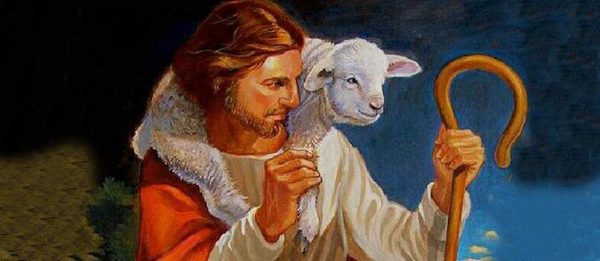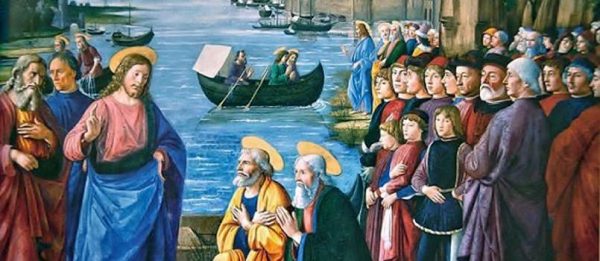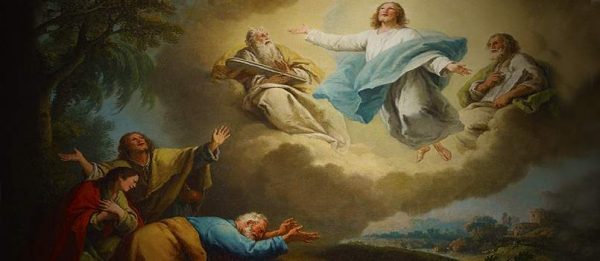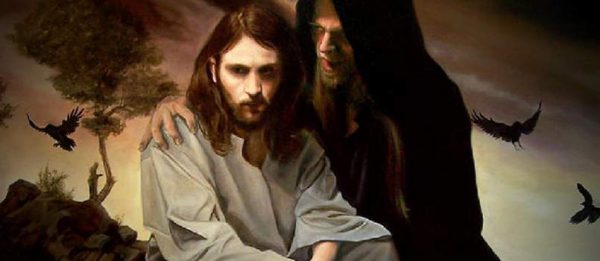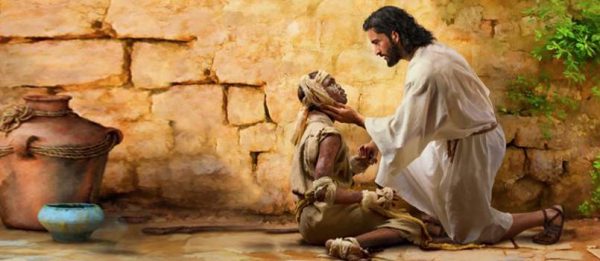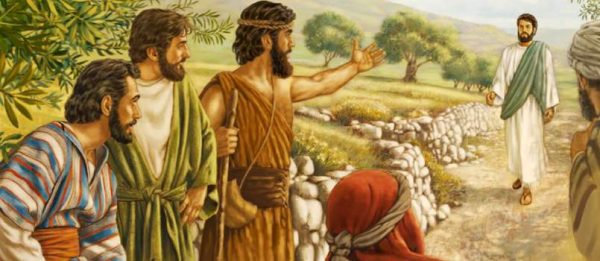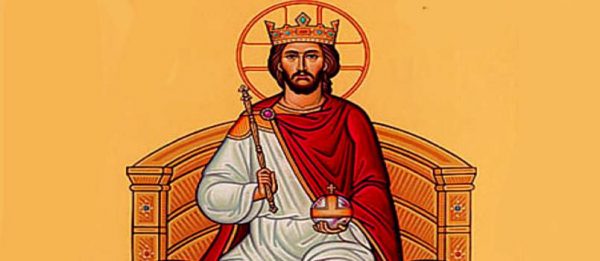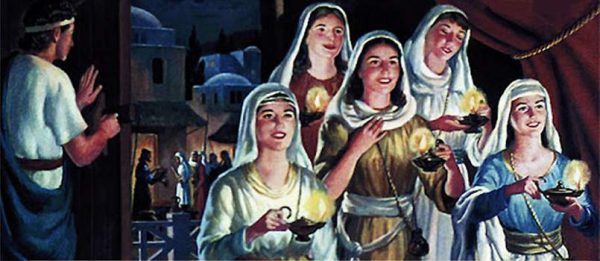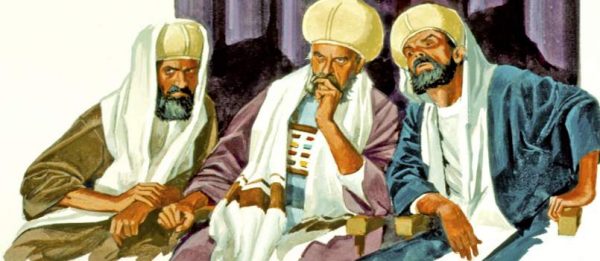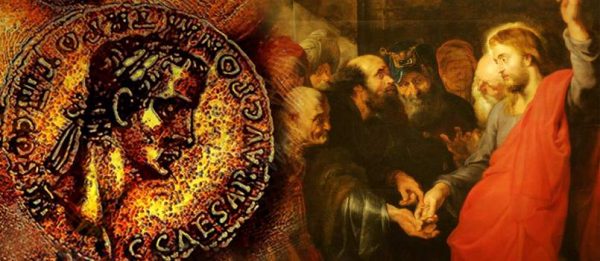146 total views
A lot often whenever I would tell people seeking guidance for important decisions in life, they always seem to be surprised, even shocked when I tell them to ask God for some signs. They feel that asking God for signs is like testing Him, an indication of a lack of faith. On the contrary, asking or looking for a sign and eventually reading a sign from God could actually be more of an act of faith than of doubt or disbelief. We find in our readings today how two men dealt with the same sign from God that led to one’s downfall and to the other’s greatness and holiness. In our first reading we have heard how the Lord asked the king of Judah to ask for a sign from Him which would eventually be cited about 400 years later by the angel sent to St. Joseph in a dream as being fulfilled in Mary pregnant with Jesus by the power of the Holy Spirit.
The Lord spoke to Ahaz, saying: “Ask for a sign from the Lord your God; let it be deep as the netherworld, or high as the sky!” But Ahaz answered, “I will not ask! I will not tempt the Lord!” Then Isaiah said: “Listen, O house of David! Is it not enough for you to weary people, you must also weary my God? Therefore the Lord himself will give you this sign: the virgin shall conceive, and bear a son, and shall name him Emmanuel.” (Is.7:10-14)
Ahaz was the king of the Southern Kingdom or Judah after Israel was divided into two kingdoms after King Solomon’s reign. Assyria was the dominant empire at that time, threatening to conquer other kingdoms around her. To avoid such fate, Ahaz entered into an alliance, even pledged allegiance to the king of Assyria in total disregard to God’s will. Such was the context of God telling Ahaz to ask Him for a sign. God wanted Ahaz to have faith in Him alone as the One who could save them from the Assyrians. Ahaz pretended to being virtuous, refusing to ask God for a sign because he actually believed more in his political moves than in God’s power. He had no faith in God at all, refusing to see and find Him coming in the many signs happening in his life. As a result of that alliance with Assyria, the people of Judah fell into idolatrous practices when Assyrian gods were included in their Temple worship that must have really “wearied God so much” according to Isaiah, thus making Ahaz’s reign one of the darkest in their history. Hence, God spoke to give a sign that “the virgin shall conceive, and bear a son, and shall name him Emmanuel.”
When we try to see the meaning of a sign which is something that points to a bigger reality like God Himself, we also find that a sign could also be an act that verifies the truth of a promise soon to be realized and fulfilled. It is what we may call as “little presence” of God in our midst consistently showing us the veracity of the truth that He would be always with us which is the meaning of Emmanuel, “God-is-with-us.” Being open to signs is being open to God who reassures us daily of fulfilling His promise that we continue to discern His will like St. Joseph in the Gospel. As we all know, St. Joseph wanted “to divorce her (Mary) quietly” until an angel appeared in his dream to explain the circumstances about Mary’s pregnancy and the child she was bearing. All this took place to fulfill what the Lord had said through the prophet: Behold, the virgin shall conceive and bear a son, and they shall name him Emmanuel, which means “God is with us.” When Joseph awoke, he did as the angel of the Lord had commanded him and took his wife into his home. (Mt.1:23-24)
Here we find in St. Joseph the exact opposite of Ahaz, truly a “righteous man” or holy man who always discerns God’s will for him by reading the signs and looking for His signs. Here is a man with a deep faith in God who could sleep soundly amid a major problem in life. When we examine the silence of St. Joseph, of his ability to discern his dreams, we also find that behind these qualities of the man is God’s consistency in giving signs about His will. And the key is openness, St. Joseph’s open mind and open heart to God. The prophecy by Isaiah continues to our day in a sense even Christ had been born long time ago because He continues to come to us, waiting to be brought forth into the world by us as modern St. Joseph and Mary who always discern God’s many signs of His coming and presence, both in good times and in bad times. Let us have that “obedience of faith” (Rom.1:5) St. Paul is asking for in the second reading, always believing in Christ Jesus who had come, who is coming and always among us.
The problem with asking for signs from God is when we consider a “sign” as a miracle wherein we dare and force God to perform something for us to have faith in Him. An example would be like telling Him to cure us or a loved one of sickness so that we would believe in Him. True faith in God is to still believe in Him even if things get worst in our life, trusting that He would never abandon us. What could be worse than knowing the love of your life pregnant but not yours? Or asking something impossible from God like asking Him for a rose to bloom in your toothpaste to believe Him. That is being like the devil in tempting Jesus “to turn these stones into bread if you are the son of God.” Such an attitude is pure lack of faith like Ahaz wherein we have made up our minds on something that any request for a sign is nothing but a manipulation, of playing god, of knowing everything, and relying more in our abilities than being open with God’s limitless possibilities. As we enter the final week of Advent, let us be reminded always of God continuing His works in us and among us in the many signs He faithfully and consistently shows us of His presence and being with us. Despite the many accusations of shortcomings against the Catholic Church in the past 2000 years, many of the things we enjoy today are to a large extent because of the Church’s continuous seeking and reading of signs from God, something that Vatican II had reaffirmed to continue. And too often, our Church falls into many crises and problems precisely of her leaders’ failure to read the many signs of the times God consistently gives. May we learn from our universal patron, St. Joseph how to silently discern and act decisively on these signs from God.
Fr. Nicanor F. Lalog II
Parokya ni San Juan Apostol at Ebanghelista
Gov. Halili Ave., Bagbaguin, Sta. Maria, Bulacan












